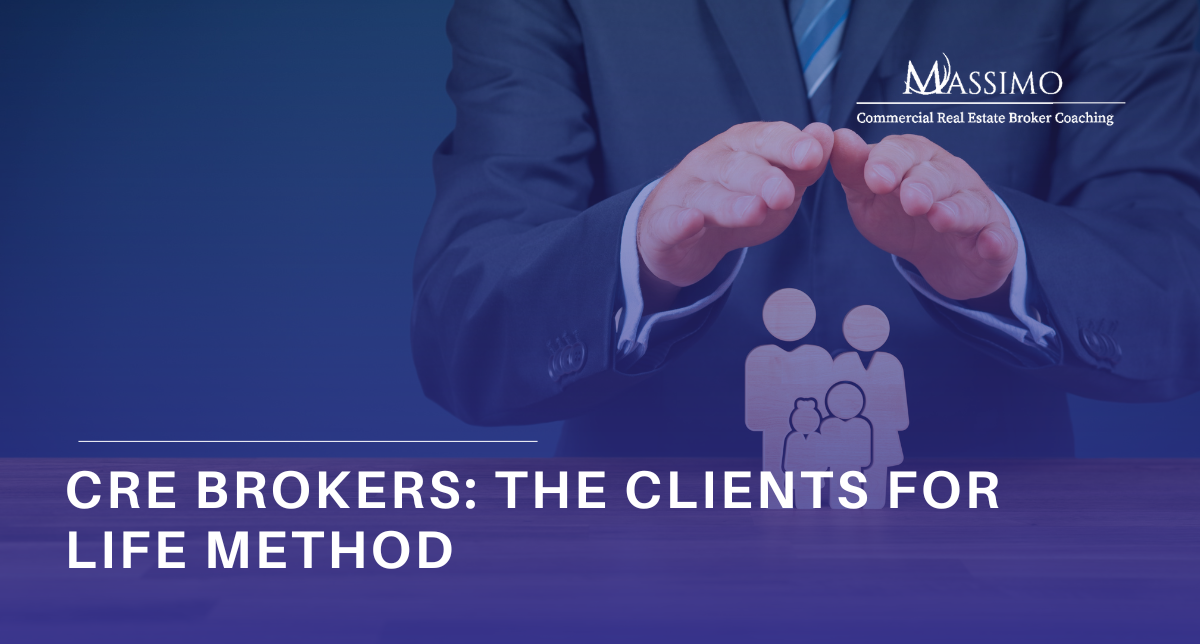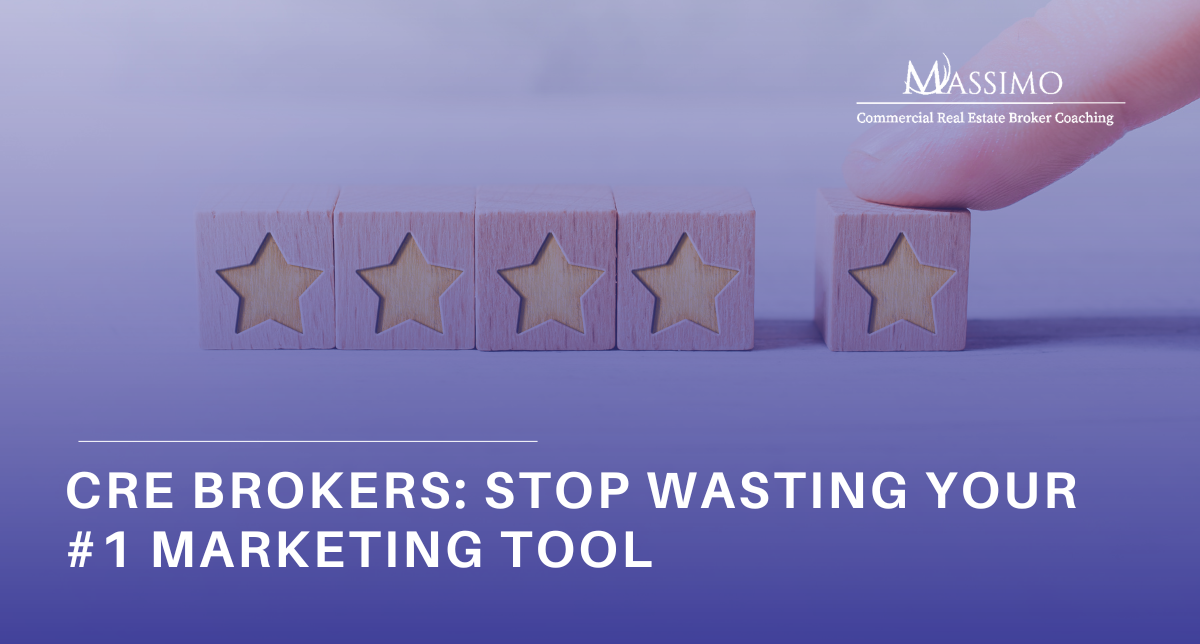As I was flying home last night after a Florida tour that included roadshows in Ft. Lauderdale, Tampa and an all-day speaking event at Coldwell Banker Commercials Global conference in Orlando, I figured I would catch up on emails, but alas there was no WIFI available. So instead, I pulled up my Kindle app and picked up a book I hadn’t read in over 2 years. Brokers Who Dominate – 8 Traits of Top Producers. Funny, you would think that since I wrote the book I would know it cold, but life always brings new information for us to focus on and we forget some of the best lessons we have learned in the past.
[Tweet “Prospecting is where the #CRE brokerage continuum starts.”]
During the 90-minute flight I made it a task to read all the sections on prospecting, as finding business is certainly where the brokerage continuum starts for all of us. There are actually scores of prospecting lessons outlined in the book; however, I thought I’D highlight 7 for you that you may find applicable, and more importantly, can implement right away.
[Tweet “7 prospecting secrets from dominant CRE professionals”]
Start by contacting your existing client(s) (assuming you have any) for referrals to their partners or others they know who own similar property. The easiest way to get a listing is with a personal referral from a satisfied customer. Many times in those situations, you do not even have to compete for the listing. Building on existing relationships is much, much more efficient and effective than cold calling a total stranger and trying to build a relationship from scratch.
If you are new to the business and have no existing clients, prospect by offering something of value at no cost to the prospect. This could be a recent sale comparable, rent comparable, research report, market survey, or interesting article applicable to their business. Don’t ever call and ask if they want to sell, because the answer is almost always “no” and the call ends there. Call (or write) and offer to do something for them or give them something free. Call with an interesting fact about their property or about a competing property they may not know (like you saw a tenant moving in/out down the street). Prospecting is all about starting to build a first name basis relationship, not about asking for an assignment. If they know you, they call you when they are thinking about selling.
Jason Little, CCIM, First Vice President and Director of Investments Sales | CBRE
Before I make a call to a prospective tenant, I always go to their website and do some background research. On their website, I typically look for press releases. There you get a good idea of what the company is working on, you find their top accomplishments which is always nice to mention in conversation. It shows that you are familiar with their company and you know what is important to them. I also try to gauge how they are doing financially. If they are publically traded this also helps you understand what their objectives are. If they are not financially strong or their sales numbers have decreased, maybe they are looking to downsize and will need to sublease excess space or maybe they are looking to consolidate. On the contrary, if their numbers are up, maybe they are looking for additional space, looking to open another location and are in acquisition mode. It sets the tone for your approach. Last, but not least, I like to review bios on their websites. It gives you great insight on who they are and what they have accomplished. Furthermore, maybe you find out something you have in common such as you went to the same university or have similar interest. You are always trying to find that common connection to be able to form that relationship. Once that is in place, then you have just increased the success rate of your prospecting.
Jill Duemeland, CCIM, CEO and President | Duemelands Real Estate
Go meet 100 people in 100 days, and your business will take off immediately. Build a database; but don’t spend so much time building it that you don’t use it to contact people and meet them in person. You are not a computer technician; you are a salesperson. Go sell!
Mary Myers, Executive Director | Marcus & Millichap
I’ve heard it asked “What would your business be like if you prospected 10-12 hours a week, each and every week?” “If the answer is it would improve it, then do it”. That is my theme for prospecting, like the Nike commercial “JUST DO IT.”
Tim Strange, CCIM, President | Investments, Newmark Grubb Levy Beffort
I have found the most effective way to develop new business is through a referral approach. I believe as a commercial real estate professional that clients more than anything desire someone that they trust to work with. When you can get a client, peer or friend to recommend you to someone there is already some level of trust from the very beginning. I have never utilized cold calling much as an approach to developing new business. While you can have success with cold calling, it’s a numbers game and less effective than a referral or recommendation. Word of Mouth is powerful.
Coy Davidson, Senior Vice President | Colliers International
I try not to make any cold calls. Because I’ve been successful for a long time, whenever I call someone, I can always tell them the details of a deal I just sold that might be either similar to one they own, or similar to one they made an offer on, so I can give them some information that they’re glad to have, not saying, “Hey, do you want to sell your apartment?” Instead, I can say, “I just want you to be aware, I know you own this 84 unit building on Victory and I just closed 110 units up the street from you. Would you like to hear about how that sale happened?” It’s more of a warm call, more of a call offering information and really not asking for anything. I’m offering them some information, some details that are relevant to them, and I think once they get a few calls from me they will say, “This guy is around and he is offering me information and I have to ask him if he’d like to take a look at my building and tell me what it’s worth.”
Dan Zander, Senior Managing Director | Berkadia
The secret to prospecting is to not become discouraged and to embrace rejection. In New York City, on average, only 2.6 percent of all buildings sell in the average year. This means that 97.4 percent of the property owners do not sell. Therefore, a positive response is something that takes a lot of work. It is important to always remember with each successive “no” you received, you are one step closer to a “yes”. This business isn’t easy and you can’t let it get you down.
Bob Knakal, Chairman | New York Investments, Cushman & Wakefield
If you are interested in only speaking with qualified prospects, and no longer wasting your time chasing those who will never make a decision or those that do not value your time, click below for our free download!





